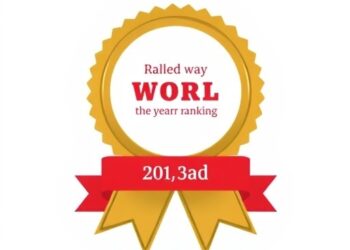Hospital admissions for heart attacks increase after exposure to lower air temperature and cold spells, according to a study published today in JACC, the flagship journal of the American College of Cardiology, and presented at the European Society of Cardiology (ESC) Congress 2024. The findings underscore the need to understand further the physiological effects of global warming’s contribution to colder weather in specific regions and cold-related cardiac risks.
Hospital admissions for heart attacks increase after exposure to lower air temperature and cold spells, according to a study published today in JACC, the flagship journal of the American College of Cardiology, and presented at the European Society of Cardiology (ESC) Congress 2024. The findings underscore the need to understand further the physiological effects of global warming’s contribution to colder weather in specific regions and cold-related cardiac risks.
“This nationwide study reveals that short-term exposures to lower air temperature and cold spells are associated with an increased risk of myocardial infarction (MI) hospitalization after two -six days, suggesting that individuals may be particularly vulnerable to acute cardiac events during periods of cold stress,” said Wenli Ni, PhD, lead author of the study and a postdoctoral research fellow at Harvard University.
JACC Editor-in-Chief Harlan M. Krumholz, MD, SM, FACC, said the study reveals a crucial link between cold weather exposure and heart attack risk, highlighting a delayed effect that peaks days after the cold spell.
“These findings also underscore the urgent need for targeted interventions to protect vulnerable populations during and, particularly, after cold stress,” Krumholz said.
Heart attacks, or MI, occur when blood flow to a part of the heart is blocked, usually by a blood clot. This blockage prevents oxygen from reaching the heart muscle, causing damage or death to that part of the muscle.
Previous studies have revealed low temperatures had a greater cardiovascular burden than high temperatures worldwide. Due to a lack of data from colder regions with extreme weather conditions, researchers based this study in Sweden, a region known for its cold climate where cold spells are common.
Tracking 120,380 individuals from the SWEDEHEART registry, researchers examined how short-term exposure to lower air temperatures and cold spells influenced the risk of heart attack hospital admissions during Sweden’s cold season (October to March) from 2005 to 2019.
For this study, researchers defined cold spells as a period of at least two consecutive days where the average daily temperature was colder than the 10th percentile of temperatures recorded across the study duration.
Results revealed that lower air temperature exposure was associated with an increased risk of total MI, NSTEMI and STEMI after two to six days. Cold spell exposure after two to six days was associated with the same increased risks.
Researchers also found exposure from day zero to one decreased the risk of heart attack hospitalizations. They said that this temporary protective effect could be due to behavior modifications during cold weather, like staying indoors to reduce exposure or delaying healthcare due to service disruptions; however, those behaviors are not sustainable and could account for the delay in hospitalizations to two to six days later.
“This temporal pattern may indicate a delayed onset of cold-related impacts on MI risk, aligning with prior research underscoring delayed cardiovascular effects of cold exposure,” Ni said. “Understanding this cold-to-MI risk lag sequence may be important for designing and implementing targeted preventive interventions.”
Effects on first-time and recurrent MI were also observed independently but the difference in these effects between first-time and recurrent MI was not statistically significant.
In an accompanying editorial comment, Kai Chen, PhD, an associate professor of Epidemiology at the Yale School of Public Health and Khurram Nasir, MD, a professor of Cardiology at the Houston Methodist, said the study’s findings call for reevaluating how health care professionals approach the intersection of environmental factors and cardiovascular health.
“Our approaches must be reevaluated in the context of increasingly unpredictable climate patterns,” Chen and Nasir said. “Addressing both ends of the temperature spectrum will ensure our healthcare systems are well equipped to manage and mitigate these challenges, ultimately fostering a more sustainable and resilient cardiovascular future.”
The article link will be available in JACC at the embargo lift on Sunday, September 1 at 18:00 BST/1:00 p.m. ET.
The American College of Cardiology (ACC) is the global leader in transforming cardiovascular care and improving heart health for all. As the preeminent source of professional medical education for the entire cardiovascular care team since 1949, ACC credentials cardiovascular professionals in over 140 countries who meet stringent qualifications and leads in the formation of health policy, standards and guidelines. Through its world-renowned family of JACC Journals, NCDR registries, ACC Accreditation Services, global network of Member Sections, CardioSmart patient resources and more, the College is committed to ensuring a world where science, knowledge and innovation optimize patient care and outcomes. Learn more at www.ACC.org or follow @ACCinTouch.
The ACC’s JACC Journals rank among the top cardiovascular journals in the world for scientific impact. The flagship journal, the Journal of the American College of Cardiology (JACC) — and specialty journals consisting of JACC: Advances, JACC: Asia, JACC: Basic to Translational Science, JACC: CardioOncology, JACC: Cardiovascular Imaging, JACC: Cardiovascular Interventions, JACC: Case Reports, JACC: Clinical Electrophysiology and JACC: Heart Failure — pride themselves on publishing the top peer-reviewed research on all aspects of cardiovascular disease. Learn more at JACC.org.
###
Journal
Journal of the American College of Cardiology




